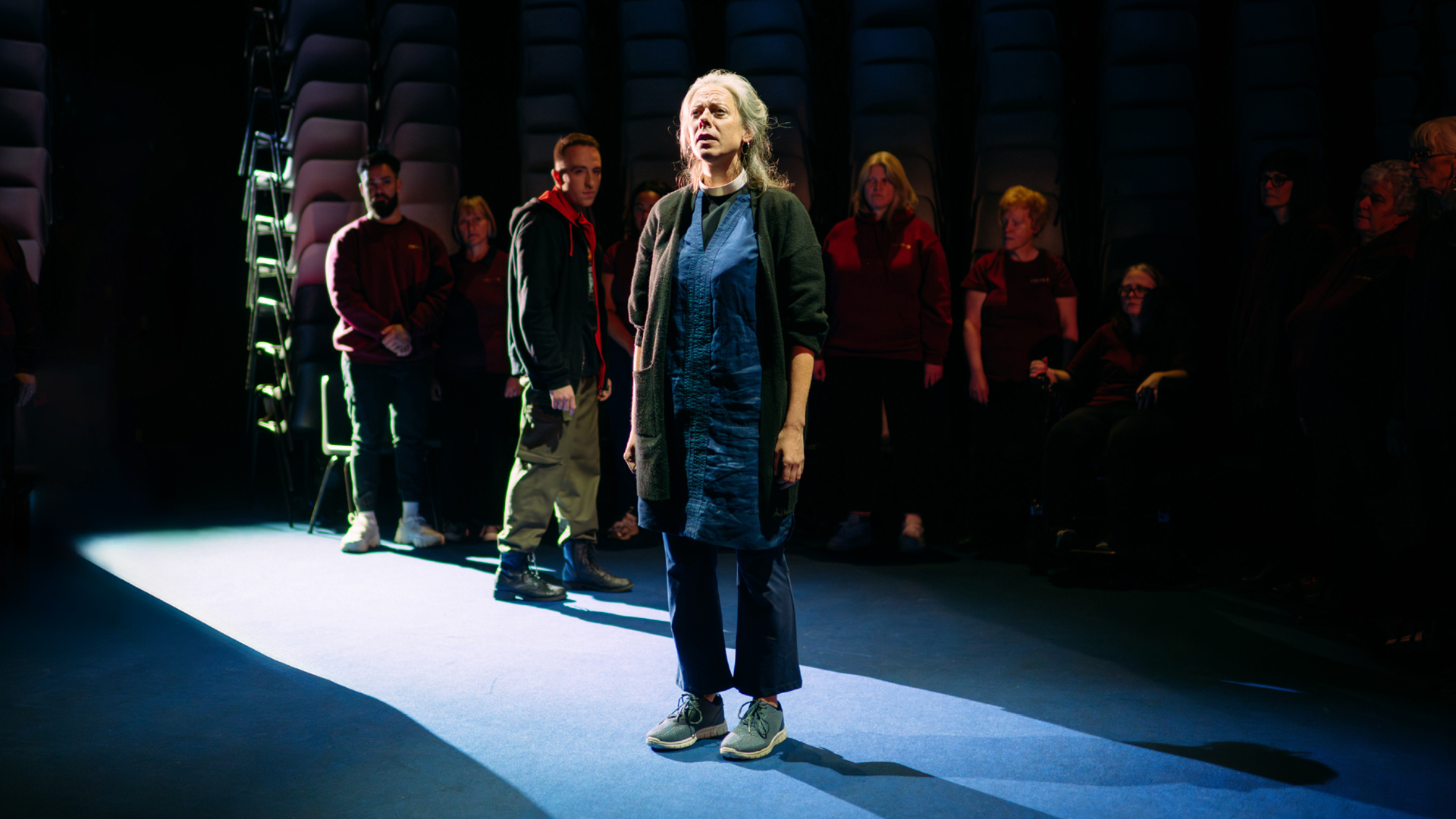4:48 Psychosis at Royal Court Theatre Review
Written by Becky K for Theatre & Tonic
Disclaimer: Gifted tickets in exchange for an honest review
This show contains flashing lights, sudden loud noises. Contains depictions of eating disorders, severe depression, self-harm and suicide
25 years after the original posthumous staging of Sarah Kane’s 4:48 Psychosis, the original cast and creative team reunite where it all began at The Royal Court’s Jerwood Theatre Upstairs. With its raw presentation of severe depression, it was an emotional watch to see the same people revisit Kane’s final play, whose unique portrayal of the psyche and severe depression feels just as impactful as it did a quarter of a century ago.
Directed by James Macdonald, the production plunges the audience into the mind of an unnamed protagonist battling extreme depression. Kane’s deconstructed version of the self is portrayed by three performers, Madeleine Potter, Jo McInnes and Daniel Even, who take the audience on a fragmented journey of the inner self. They explore the dark themes of depression, suicide, self-hatred, and ultimately drawing back to the time 4:48, which contextually refers to the time that Kane would wake up in her depressive state.
The performers barely interacted with each other on stage. Even with duologue scenes, the exchanges would be disconnected. An example of this is where Potter and Evans present a disjointed scene between a doctor and their patient, where the doctor is questioning the patient’s motivations for self-harm. Potter, as the doctor, refusing eye contact with the patient, disinterestedly asking questions, interacts with Evan’s more direct persona, confidently explaining his desire to hurt himself. This is just one example of how Macdonald brilliantly brings across Kane’s stylised text, using the physicality of his actors to show fragmented human interactions - simultaneously showing human ignorance towards mental health as well as a blockage of real human connection as a result of mental illness.
It was clear that all actors were very familiar with the text, masterfully delivering each line with thought and nuance. A special mention goes to Jo McInnes’ performance, who offers the most climactic moment of the production, lying down on the table, screaming into her own reflection around her dissatisfaction with life. Her stunning performance made me hang on to every agonising word of Kane’s.
The set, designed by Jeremy Herbert, gave the illusion of a blank box. A white, square floor, accompanied by a slanted mirror as its backdrop, provided both an end-on and a birds-eye view, crafting an entrapped feeling throughout. It also created some visually striking moments, including static television projections to reinforce the associations of brain fog that come with mental illness, as well as the bright white to emphasise the clinical aspect of mental illness, all of which provided an uncomfortable atmosphere.
The movement also worked flawlessly with the set. The way that the performers would face the mirror, looking in on themselves, added an intimate layer where you felt like you were truly hearing their inner thoughts. Equally, the stillness of the final scene, with each performer lying down in staged death poses, was nihilistic and haunting.
While a difficult watch, the effect of Kane’s 4:48 Psychosis stands strong 25 years on, and will remain as one of the boldest and influential playtexts of the 21st century.
4:48 Psychosis plays at the Royal Court Theatre until 05 July.
★★★★★















